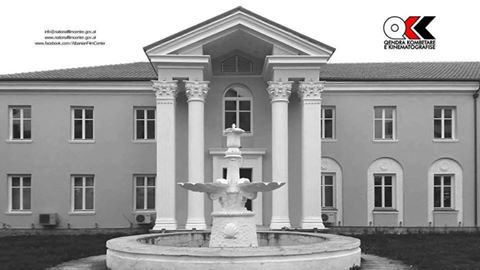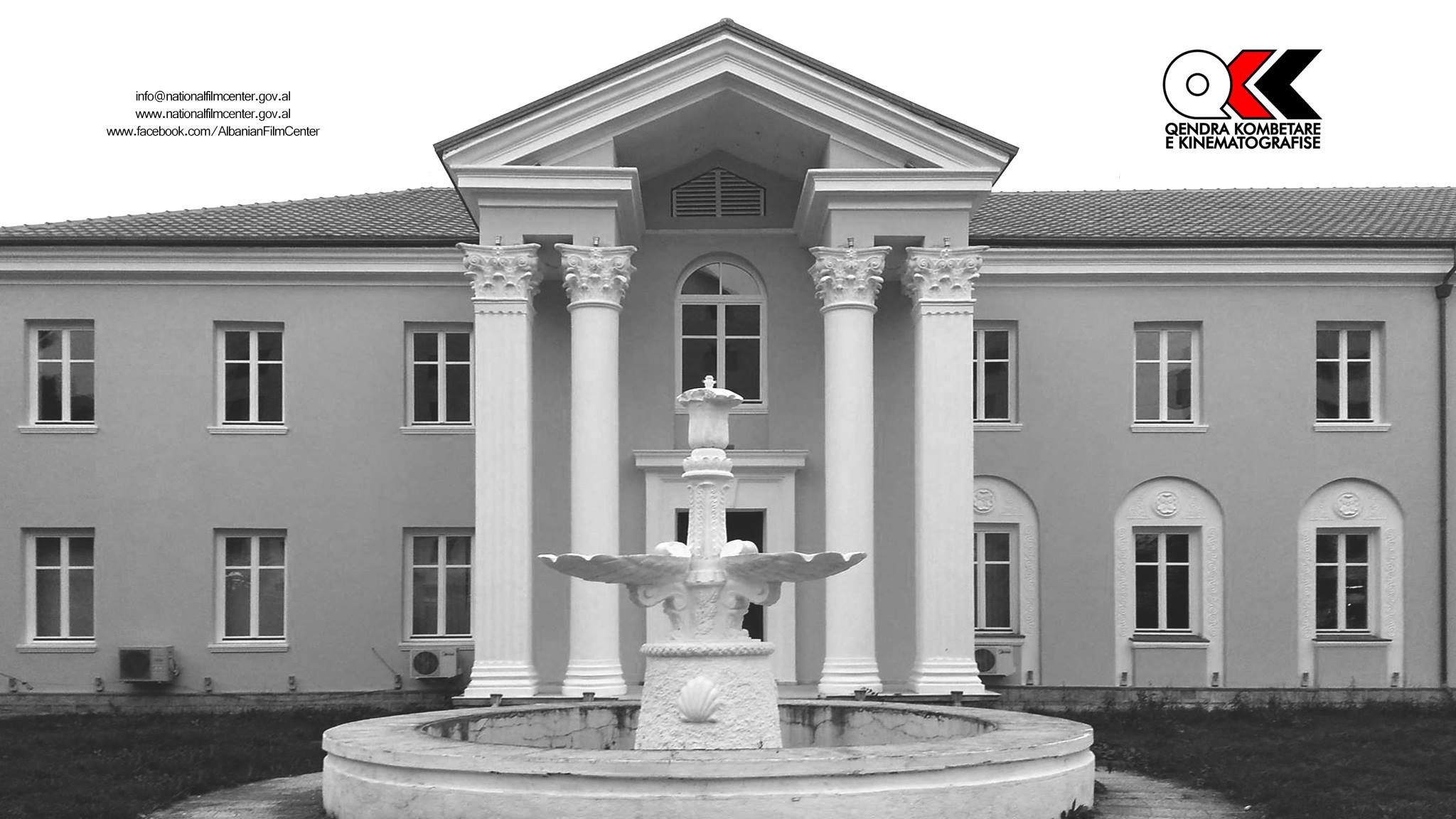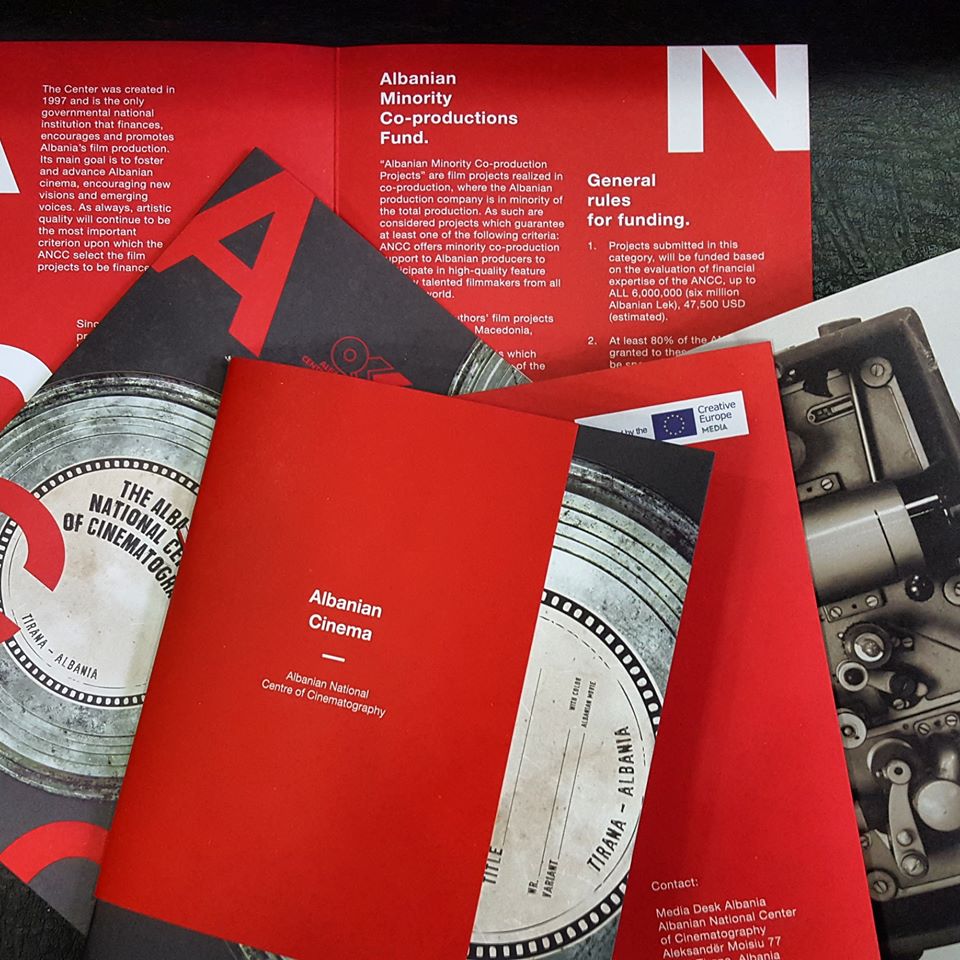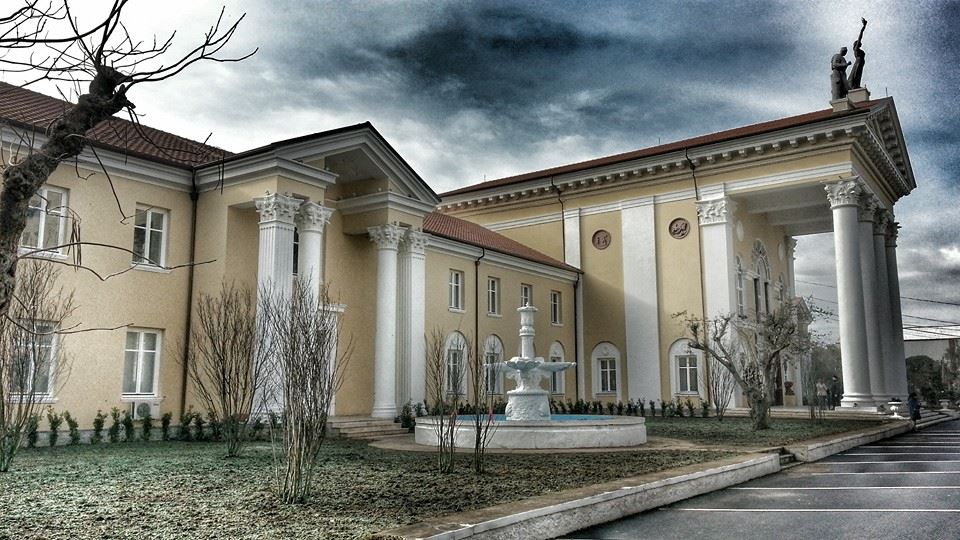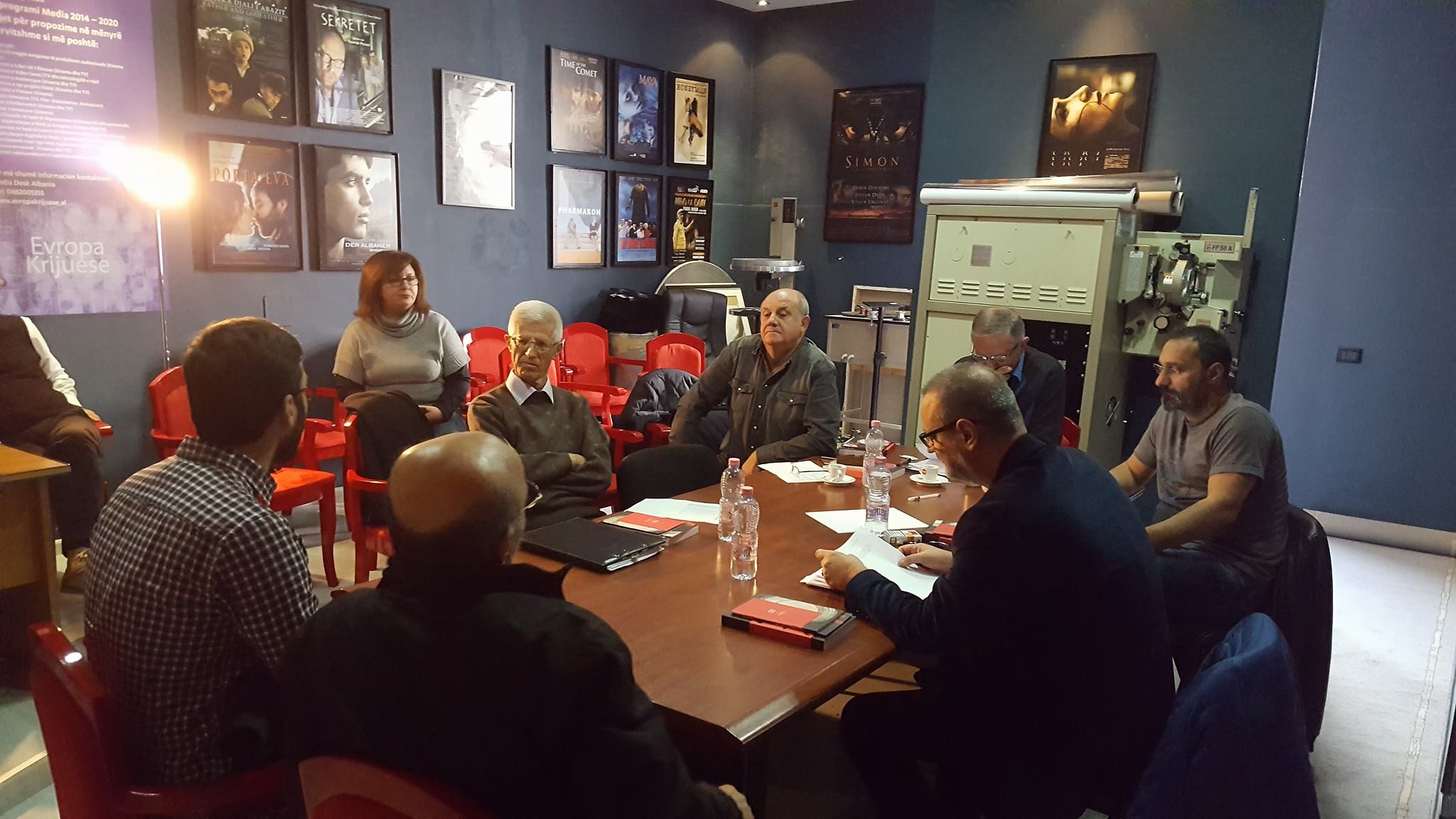
Filmmakers from the Central and Eastern Europe may now apply to the Ji.hlava Film Fund for support of their creative documentary films and receive visual and sound post-production services in the amount of 16,000 EUR, and other benefits. This is a new Ji.hlava’s programme launched this year.
The eligible countries are: Albania, Armenia, Azerbaijan, Belarus, Bosnia and Herzegovina, Bulgaria, Croatia, Czech Republic, Estonia, Georgia, Hungary, Kosovo, Latvia, Lithuania, Macedonia, Moldova, Montenegro, Poland, Romania, Russia, Slovakia, Slovenia, Serbia, Ukraine.
Deadline for applications is April 30, 2017. More information can be found here.
Category: ANCC
DOCU TALENTS @KVIFF
New opportunities for documentary filmmakers from the Central and Eastern Europe with deadlines at the end of this month. We would like to ask you to share them with filmmakers in your respective countries.Filmmakers from the Central and Eastern Europe can submit their documentary films in production or post-production to the Docu Talents @KVIFF, selecting twelve most remarkable Central and East European documentaries. They will be presented on July 4, 2017 to festival programmers, distributors, sales agents and journalists attending the 52nd Karlovy Vary IFF.
Deadline for applications is April 30, 2017. More information can be found here.
NJOFTIM
Këshilli i Miratimit të Projekteve i mbledhur në datë 20.04.2017,
V E N D O S I:
I. T’i propozojë Kryetarit të Qendrës Kombëtare të Kinematografisë financimin e këtyre projekteve:
- Projekti “Festivali i Filmit Ballkanik dhe i Kulinarisë”, paraqitur nga shtëpia kinematografike “Action Production” sh.p.k.
- Projekti “Tirana International Film Festival”, paraqitur nga shtëpia kinematografike “Tirana Film Institute”.
- Projekti “A-FestFilm Argjiro-Rozafa 2017”, paraqitur nga shtëpia kinematografike “Projekt SXHJ” sh.p.k.
- Projekti “Festivali Ndërkombëtar i Filmit Dea Open Air”, paraqitur nga shtëpia kinematografike “Multi Media Nositi” sh.p.k.
- Projekti “Festivali Ndërkombëtar i Filmit për të Drejtat e Njeriut në Shqipëri”, paraqitur nga shtëpia kinematografike “ORA Film” sh.p.k.
- Projekti “Festivali Ndërkombëtar i Filmit Giffoni Film-Shqipëria”, paraqitur nga shtëpia kinematografike “MEDIAVISION” sh.p.k.
- Projekti “Festivali First Step Film Fest”, paraqitur nga shtëpia kinematografike “D’ART”.
II. T’i propozojë Kryetarit të Qendrës Kombëtare të Kinematografisë financimin e projektit kategorinë Minority Coproduction:
- “Loja e parave”, skenari dhe regjia Antonio Mirabitto, paraqitur nga shtëpia kinematografike “Filter Film” sh.p.k.
III. T’i propozojë Kryetarit të Qendrës Kombëtare të Kinematografisë financimin e projektit për promocion dhe distribucion të projektit kinematografik me metrazh të gjatë- vepër e parë “Dita zë fill”, skenari dhe regjia Gentian KOÇI.
IV. Miratimin e kërkesës së shtëpisë kinematografike “EuroFilm” sh.p.k., për ndërrimin e regjisorit të projektit për film artistik me metrazh të shkurtër “I ardhur nga ëndrrat”, skenari Vladimir PRIFTI. Projekti do të realizohet nga regjisori Klajd PAPADHIMITRI.
Mediterranea 18 Young Artists da Bari a Durazzo

Mediterranea 18 Young Artists è un evento internazionale multidisciplinare che si svolge a Tirana e Durazzo, in Albania, dal 4 al 9 Maggio 2017.
L’evento si aprirà con una pre-Biennale il 3 Maggio a Bari, che ospiterà gli artisti. Andrà in scena per l’occasione lo spettacolo Kater I Rades. Il Naufragio (opera da camera, con musiche di Admir Shkurtaj e libretto di Alessandro Leogrande; produzione La Biennale di Venezia e Koreja). L’Opera ricorda la tragedia del 1997, quando l’affondamento della piccola imbarcazione albanese causò una delle più grandi tragedie del Mediterraneo.
A Bari saranno presenti: Michele Emiliano, Presidente della Regione Puglia; Dora Bei, Presidente Bjcem, e Mirela Kumbaro Furxhi, Ministro della Cultura della Repubblica di Albania . Poi dal porto di Bari circa 120 artisti saliranno su un traghetto che li porterà a Durazzo, e a bordo si terrà una conversazione sul tema “Arte e migrazioni” con lo scultore greco Costas Varotsos, gli albanesi Adrian Paci e Roland Seiko e altri ospiti. Avranno la possibilità di salire a bordo anche alcuni studenti pugliesi selezionati.
Attraverso la presenza di 230 artisti – provenienti dall’Europa e dal Mediterraneo – porterà al di la’ dell’Adriatico il senso più profondo e contemporaneo della cultura Mediterranea ed Europea. Dal 1985 la manifestazione si svolge ogni due anni in una città diversa dell’area Mediterranea e si rivolge a giovani artisti e creativi. Sito http://www.bjcem.org/mediterranea18/
Adr.S.
KMP e animacionit, Njoftim
Këshilli Miratues i Projekteve, i përbërë nga zotërinjtë:
- Suzana VARVARICA KUKA,
- Ardian ISUFI,
- Alda BARDHYLI,
- Helidon HALITI
u mblodhën sot, më datë 19.04.2017, në mbledhjen me këtë rend dite:
- Konstituimi i KMP dhe zgjedhja e Kryetarit të KMP.
- Njohje me Rregulloren e funksionimit të Këshillit Miratues të Projekteve.
- Shqyrtimi i projekteve kinematografike për filma të animuar, të depozituar deri në datën 14.10.2016 ndryshme kinematografike. Komisioni i Shqyrtimit Paraprak të Projekteve ka kualifikuar për konkurim këto projekte kinematografike:
- “Vogëlushja prej bore”, skenari Ajola DAJA, regjia Megi KARAJ, paraqitur nga produksioni “A.R.” p.f.
- “Macja”, skenari dhe regjia Artur DAUTI, paraqitur nga shtëpia kinematografike “Projekt SXHJ” sh.p.k.
- “Mirënjohja”, skenari Kujtim GJONAJ, regjia Bertrand SHIJAKU, paraqitur nga shtëpia kinematografike “Bota Shqiptare” sh.p.k.,
- “Koha tjetër”, skenari dhe regjia Stefan TAÇI, paraqitur nga shtëpia kinematografike “Papadhimitri Film Production” sh.p.k.
Këshilli i Miratimit të Projekteve,
V E N D O S I:
- Kryetari i Këshillit të Miratimit të Projekteve zgjidhet znj. Suzana VARVARICA KUKA.
- Projektet e paraqitura në konkurim kthehen për plotësimin e dokumentacionit si më poshtë:
- Të bëhet zhvillimi emocional i personazheve në raport me ndryshimet e tyre psikologjike në skenat më kryesore të skenarit.
- Të bëhet zhvillimi i disa skenave kryesore të skenarit në raport me personazhet.
- Të paraqitet përpara KMP material pilot 10-30 sekonda, i cili do të shërbejë për të krijuar një ide më të qartë rreth qasjes artistike dhe estetike, të atmosferës të animacionit të teknikës dhe të formatit me të cilin do të realizohet filmi.
- Afati i fundit për paraqitjen e materialeve të kërkuara në pikën II të këtij vendimi, të jetë data 20.06.2017.
- Ky vendim hyn në fuqi menjëherë.
Lista e filmave artistikë (me metrazh të gjatë) që kanë fituar, që janë financuar dhe që janë realizuar me mbështetjen e QKK-së që nga krijimi i saj në vitin 1997.
Që nga krijimi në vitin 1997 deri në vitin 2017 (20 vjet), QKK ka financuar 71 filma të gjatë.
Lista e Filmave të realizuar 1997 -2015
| 1 | Nata | 1997 |
| 2 | Bolero | 1997 |
| 3 | Dasma e sakos | 1998 |
| 4 | Porta Eva | 2000 |
| 5 | Funeral Biznes | 2000 |
| 6 | Tirana viti 0 | 2001 |
| 7 | Parrullat | 2001 |
| 8 | Misteret e Butrintit | 2002 |
| 9 | Nata pa hënë | 2003 |
| 10 | Ëndërr dimri (Yllka) | 2003 |
| 11 | Syri magjik | 2004 |
| 12 | Lule të kuqe lule të zeza | 2004 |
| 13 | I dashur armik | 2005 |
| 14 | Mao-Ce-Dun | 2006 |
| 15 | Gjoleka djali i Abazit | 2006 |
| 16 | Koha e kometës | 2008 |
| 17 | Trishtimi i zonjës Shnaider | 2008 |
| 18 | Kronikë provinciale | 2009 |
| 19 | Lindje-Perëndim-Lindje | 2009 |
| 20 | Ne dhe Lenini | 2009 |
| 21 | Sekretet | 2009 |
| 22 | Gjallë | 2009 |
| 23 | Muajt e mjaltit | 2009 |
| 24 | Shqiptari | 2010 |
| 25 | Ballkan Bazar | 2011 |
| 26 | I huaji (Maja) | 2011 |
| 27 | Pharmakon | 2011 |
| 28 | Out of Touch | 2011 |
| 29 | Amnistia | 2011 |
| 30 | Agon | 2012 |
| 31 | Ada | 2013 |
| 32 | Amsterdam Express | 2014 |
| 33 | Amanet | 2014 |
| 34 | Bota | 2014 |
| 35 | Engjëjt janë larg | 2015 |
Lista e filmave të financuar 2015 – 2017
| 36 | Krom / Chromium | 2015 | realizuar |
| 37 | Ndërkombëtarët / The Internationals | 2015 | montazh |
| 38 | Të thyer / Broken | 2015 | realizuar |
| 39 | Përtej detit / Across the Sea | 2015 | realizuar |
| 40 | Hija e diellit / Shadow of the Sun | 2015 | prodhim |
| 41 | Sex, përrallë dhe celular / No Country for Fairy Tales | 2015 | realizuar |
| 42 | Dita zë fill / The Daybreak | 2015 | realizuar |
| 43 | Bunker / Bunker | 2015 | montazh |
| 44 | Pranverë e paharruar në fshatin e harruar / An Unforgettable Spring in the Forgotten Village | 2015 | montazh |
| 45 | Të tretunit / The Vanished | 2015 | përgatitje |
| 46 | Martesa / The Marriage | 2015 | realizuar |
| 47 | Elvisi kthehet në shtëpi / Elvis walks home | 2016 | montazh |
| 48 | Delegacioni / The Delegation | 2016 | montazh |
| 49 | Damari / The Vain | 2016 | pending |
| 50 | Streha me reve / A Shelter Among the Clouds | 2016 | përgatitje |
| 51 | Hije / Shadows | 2016 | realizuar |
| 52 | Yjet e të ardhmes / Stars of the Future | 2016 | montazh |
| 53 | Mos / Don’t | 2016 | montazh |
| 54 | Legjenda e bastunit / The Legend of the Cane | 2016 | pending |
| 55 | Cirku fluturues / The Flying Circus | 2016 | pending |
| 56 | Burri i shtëpisë / The Man of the House | 2016 | pending |
| 57 | 7 ditë / 7 Days | 2016 | realizuar |
| 58 | Njeriu i dosjeve / Cold November | 2016 | montazh |
| 59 | Shpia / The House | 2016 | përgatitje |
| 60 | Fusha e mëllenjave / The Field of Black Birds | 2016 | montazh |
| 61 | Bolero në vilën e pleqve / Bolero in the Elder’s Villa | 2017 | përgatitje |
| 62 | Liqeni im / My Lake | 2017 | përgatitje |
| 63 | Portreti i pambaruar i Klara Bellinit / The Unfinished Portrait of Klara Bellini | 2017 | përgatitje |
| 64 | Vera pa kthim / Waiting for the Summer | 2017 | përgatitje |
| 65 | Derë e hapur / Open Door | 2017 | përgatitje |
| 66 | Nik / Nik | 2017 | përgatitje |
| 67 | Testamenti / The Testament | 2017 | përgatitje |
| 68 | 3 luanë drejt Venecias / 3 Lions Heading Venice | 2017 | përgatitje |
| 69 | Xixëllonjat / The Fireflies | 2017 | përgatitje |
| 70 | Love / Love | 2017 | përgatitje |
| 71 | Nji prej nesh / One of Us | 2017 | përgatitje |
QKK | Fakte dhe numra
Qe nga krijimi ne vitin 1997 deri me sot (20 vjet) QKK ka financuar 296 filma nga te cilat 183 prej tyre jane financuar ne perjudhen 1997 – 2014.
Keta filma i perkasin kategorive te meposhteme:
28 filma te gjate
33 filma te shkurter
74 dokumentare,
48 filma te animuar
Mesatarisht gjate 17 viteve (1997 – 2014) jane financuar cdo vit rreth 11 filma:
2 filma te gjate
2 filma te shkurter
4 dokumentare
3 filma te animuar
Vetem gjate 3 viteve te fundit (2015-2017) jane financuar 113 filma ne total, nga te cilet:
51 filma te gjate,
29 filma te shkurter
18 dokumentare
15 animacion
Mesatarisht gjate 3 viteve (2015-2017) jane financuar cdo vit rreth 37 filma, nga te cilet:
17 filma te gjate
9 filma te shkurter
6 dokumentareit
5 filma te animuar
Pra vetem ne 3 vitet e fundit jane financuar rreth 1/3 e filmave ne total te financuar gjate 20 vjeteve te funksionimit te QKK-së.
Gjate 3 viteve 2015 – 2017 jane financuar me shume filma te gjate se sa ne perjudhen 1997 – 2014, (51 filma perkundrejt 28 filma).
Ne vitet me te mira te “Kinostudios” realizoheshin rreth 40 filma ne vit, nga te cilet 14 ishin filma te gjate dhe pjesa tjeter dokumentare dhe animacion.
Kjo shifer konsiderohej dhe vazhdon te konsiderohet edhe sot nje rekord referuar numrit te popullsise, nderkohe qe QKK aktualisht financon nje numer me te madh projektesh. Praktikisht gjate vitit 2017 u financuan nga QKK 49 projekte, nga te cilet 24 ishin filma te gjate dhe pjesa tjeter, filma te shkurter, dokumentare dhe animacion.
QKK, Filmat e financuar per vitin 2015
Aplikuan për fonde 78 projekte filmike.
Pas proçesit të vlerësimit kanë fituar të drejtën për financim 37 projekte:
12 Filma të gjatë, 10 Filma të shkurtër, 4 Dokumentarë, 3 Filma të Animuar, 4 Zhvillim projekti, 4 Festivale Filmi
4 Filma me metrazh të gjatë
3 Filma me metrazh të gjatë, vepër e parë
3 Filma me metrazh të gjatë Indipentent
2 Filma me metrazh të gjatë (Bashkëprodhime minoritare)
4 Filma me metrazh të shkurtër
6 Filma me metrazh të shkurtër Indipendent
1 Dokumentar
3 Dokumentarë Indipendentë
3 Filma të animuar
4 Zhvillim projekti
4 Festivale Filmi
Mosha mesatare e fituesve 41 vjec
18 regjisore te financuar aplikojne per here te pere ne QKK
30% e regjisoreve fitues jane femra
QKK, Filmat e financuar per vitin 2016
Aplikuan ne QKK 81 projekte filmike.
Pas proçesit të vlerësimit fitojnë të drejtën për financim 43 projekte:
15 Filma të gjatë, 4 Filma të shkurtër, 6 Dokumentarë, 10 Filma të Animuar, 6 Festivale Filmi
4 Filma me metrazh të gjatë
4 Filma me metrazh të gjatë, vepër e parë
4 Filma me metrazh të gjatë Indipentent
3 Filma me metrazh të gjatë (Bashkëprodhime minoritare)
3 Filma me metrazh të shkurtër
1 Film me metrazh të shkurtër Indipendent
6 Dokumentarë
4 Filma të Animuar
6 Filma të Animuar Indipendentë
6 Festivale Filmi
Mesatarja e regjisoreve te financuar 40 vjec
QKK, Filmat e financuar per vitin 2017
Aplikuan ne QKK 63 projekte filmike.
Pas proçesit të vlerësimit fitojnë të drejtën për financim 49 projekte:
24 Filma të gjatë, 15 Filma të shkurtër, 8 Dokumentarë dhe 2 filma të
animuar.
4 Filma me metrazh të gjatë
7 Filma me metrazh të gjatë, vepër e parë
4 Filma me metrazh të gjatë (Bashkëprodhim minoritar)
7 Filma me metrazh të gjatë Indipendent
2 Filma me metrazh të gjatë, pasprodhim
7 Filma me metrazh të shkurtër
7 filma me metrazh të shkurtër Indipendent
1 Film me metrazh të shkurtër pasprodhime
7 Filma dokumentarë
1 Film dokumentar Indipendent
1 Film i animuar
1 Film i animuar Indipendent
APLIKIMET SIPAS KATEGORIVE
FEATURE
FEATURE, DEBUT
FEATURE, INIPENDENT
SHORT
SHORT, INDIPENDENT
DOCUMENTARY
DOCUMENTARY, INDIPENDENT
ANIMATION
ANIMATION, INDIPENDENT
FILM ME BASHKEPRODHIM NE MINORANCE
POSTPRODUCTION
PROMOTION
DISTRIBUTION
FILMFESTIVAL
OTHER PROJECT
MEDIA DESK ALBANIA
Albania joints Creative Europe Programme in June 2014. From January
2015 Albania is part also of the Sub – Media Programme.
Media Desk Albania was first open in July 2015. The Desk is fully operational
providing day to day support to all Albanian interested applicants for the
calls for proposals published by the Sub – Media programme.
Media Desk Albania is located on the premises of the Albanian National
Centre of Cinematography which provides not only infrastructure faculties
but excellent contacts with the entire cinema and audio – visual sector in
Albania.
The Desk works in strong cooperation with the Creative Europe Desks
of all the countries participating in the Media programme and is able to
provide all kind of support requested by the European audio-visual sector,
i.e. Albanian partner search, distribution of information among the Albanian
audio-visual sector, information on audio-visual development in the
country, etc.
KËSHILLAT MIRATUES TE PROJEKTEVE
Prane Qendrës Kombëtare të Kinematografisë funksionojne dy Keshilla Miratues te Projekteve.
Keshilli i pare miratues i projekteve mbulon te dy gjinite e filmit artistik dhe dokumentar ndersa Keshilli i dyte mbulon filmin te animuar.
Keshillat perzgjedhin dhe vleresojne projektet nga pikpamja artistike e ekonomike. Projektet fituese i paraqiten kryetarit per miratim. Këshillat Miratues te Projekteve ( KMP) zgjidhen një herë në cdo 2 vjet. Kandidatet per anetar te KMP propozohen nga shoqatat e kineastëve.
Këshilli i Miratimit të Projekteve është i përbërë nga zotërinjtë:




